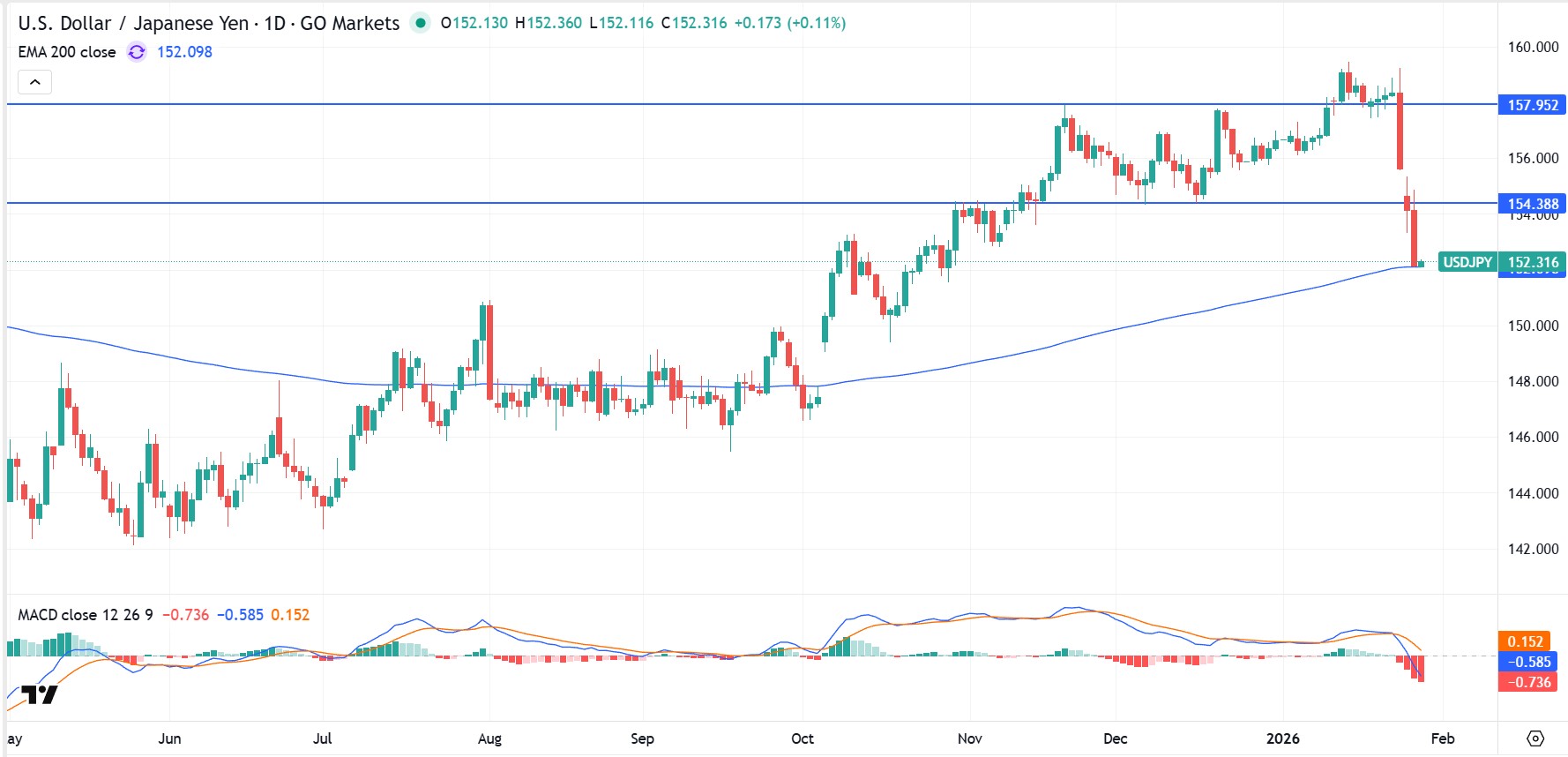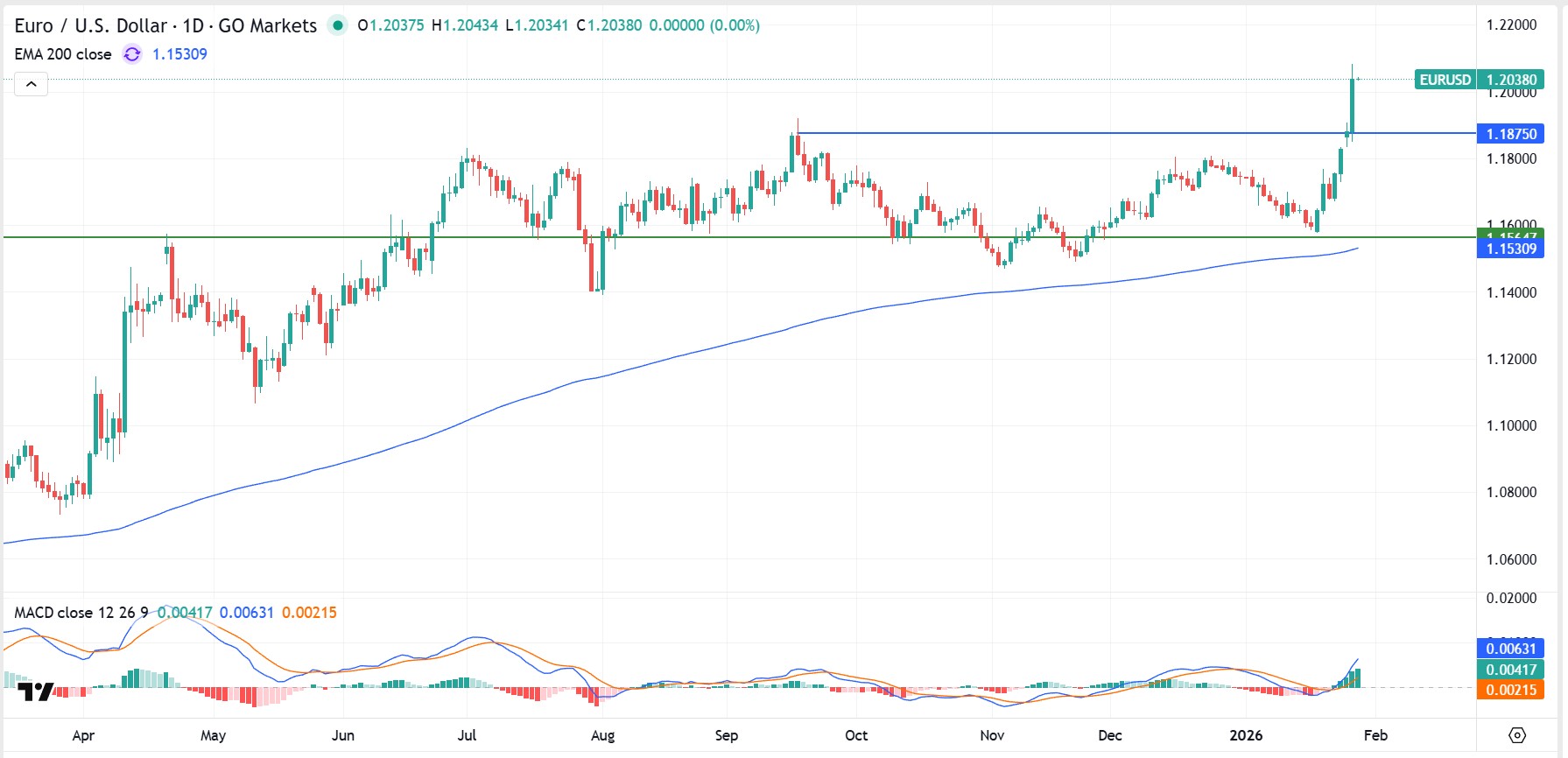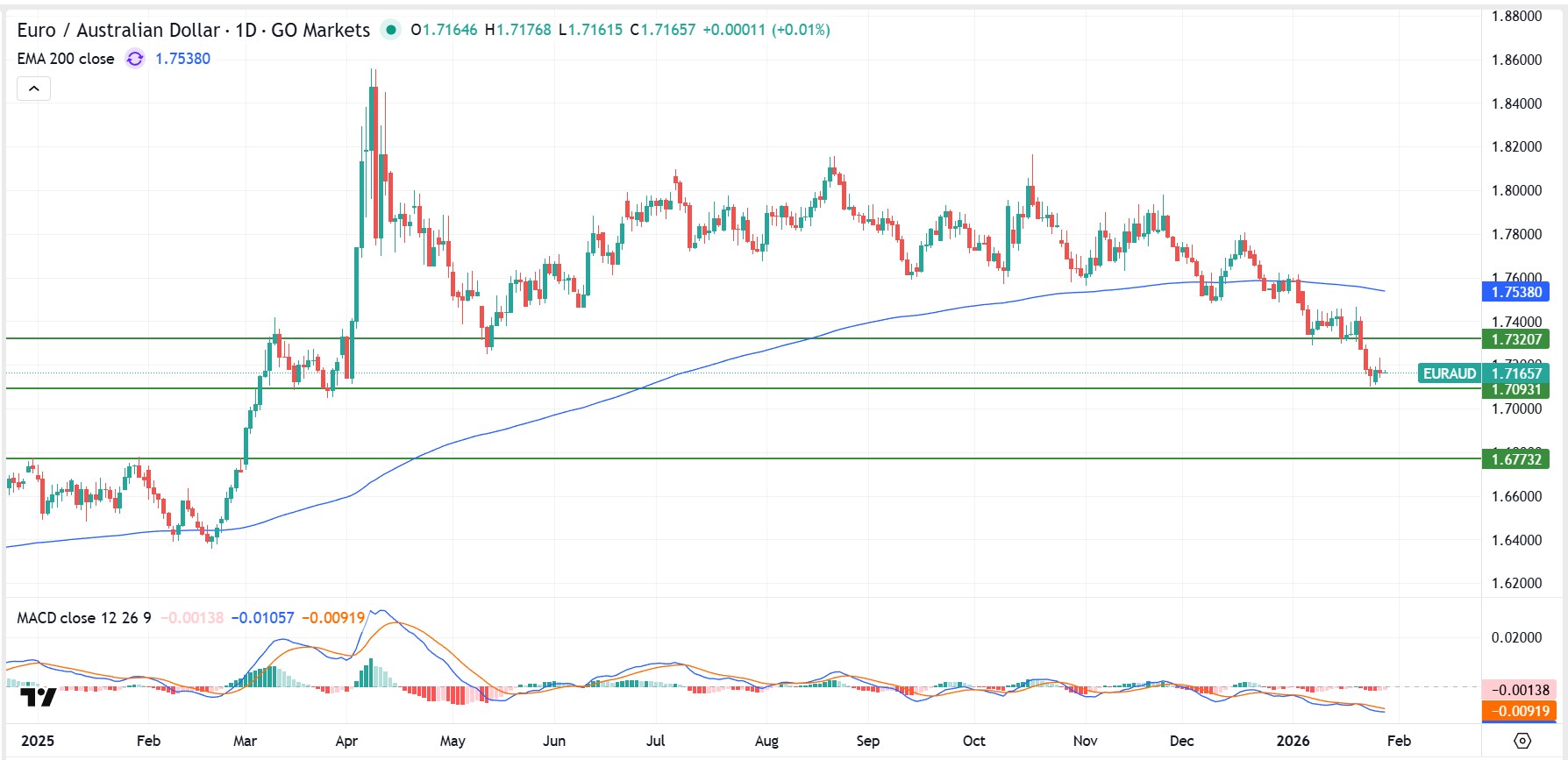Berita & analisis pasar
Tetap selangkah lebih maju di pasar dengan wawasan ahli, berita, dan analisis teknikal untuk memandu keputusan trading Anda.

FX markets enter an important window with a Federal Reserve policy decision and press conference, US ISM activity data, German inflation releases, China PMIs, and Australian labour figures all due.
Quick facts
- The upcoming Fed policy decision and press conference are closely watched for guidance on the potential timing of rate cuts, with implications for US Treasury yields and USD direction.
- Broad USD selling has intensified over the last 48 hours. The move has coincided with renewed tariff rhetoric and heightened sensitivity to FX intervention narratives.
- ISM Manufacturing PMI is scheduled for Monday, 2 February, with ISM Services PMI on Wednesday, 4 February, providing timely insight into US growth momentum.
- German CPI, euro area GDP and unemployment, China PMIs, and Australian labour data provide regional context, particularly for EUR and AUD crosses.
USD/JPY
What to watch
The Federal Reserve decision and subsequent press conference are key events influencing US Treasury yields.
Any shift in tone around inflation progress, economic risks, or rate cut timing expectations may affect yield differentials and near-term USD sensitivity.
Recent broad USD weakness, reinforced by tariff-related headlines and intervention sensitivity, has added downside pressure to the USD.
On the JPY side, Japan inflation signals, including Tokyo CPI, are relevant as indicators of domestic price trends and potential policy direction.
Key releases and events
- Thu 30 Jan: Japan Tokyo CPI (January)
- Thu 30 Jan: Federal Reserve policy decision and press conference
- Mon 2 Feb: US ISM Manufacturing PMI
- Wed 4 Feb: US ISM Services PMI
Technical snapshot
USDJPY has broken lower from its recent consolidation zone, with downside range evident over the last 48 hours. Price has moved down to the 200-exponential moving average (EMA) and is testing a level not seen since October 2025.

EUR/USD
What to watch
The Fed decision and press conference may influence EUR/USD primarily through USD moves linked to Treasury yield reactions.
On the EUR side, German CPI will show inflation trends, while euro area flash GDP and unemployment data inform the regional growth outlook.
Key releases and events
- Thu 29 Jan: Germany CPI (preliminary)
- Thu 29 Jan: Eurozone flash GDP, Q4 2025
- Thu 30 Jan: Federal Reserve decision and press conference
- Fri 30 Jan: Eurozone unemployment rate
Technical snapshot
EURUSD has extended above a prior resistance level, with expanded daily ranges and strong momentum. Price action in other USD crosses suggests the move may be reflecting USD weakness, rather than a material shift in euro area fundamentals.

EUR/AUD
What to watch
Alongside euro area growth numbers, Australian employment data may influence near-term EUR/AUD sensitivity ahead of the RBA policy decision next week.
China's official PMIs remain relevant, as shifts in Chinese activity expectations can influence AUD via commodity demand and regional risk sentiment.
Key releases and events
- Thu 29 Jan: Australia Labour Force, Detailed (Dec 2025), 11:30am AEDT
- Fri 31 Jan: China official Manufacturing and Non-Manufacturing PMIs
- Tue 4 Feb: RBA policy decision
Technical snapshot
EUR/AUD has decisively broken below its prior support zone, with price now testing levels not seen since April 2025. Momentum remains negative, consistent with a renewed downside phase rather than consolidation.

Bottom line
The Fed decision and press conference, US PMI data, German inflation releases, China PMIs, and Australian labour figures are clustered in a short window.
Markets will be watching whether the USD weakness evident over the last 48 hours extends further.

